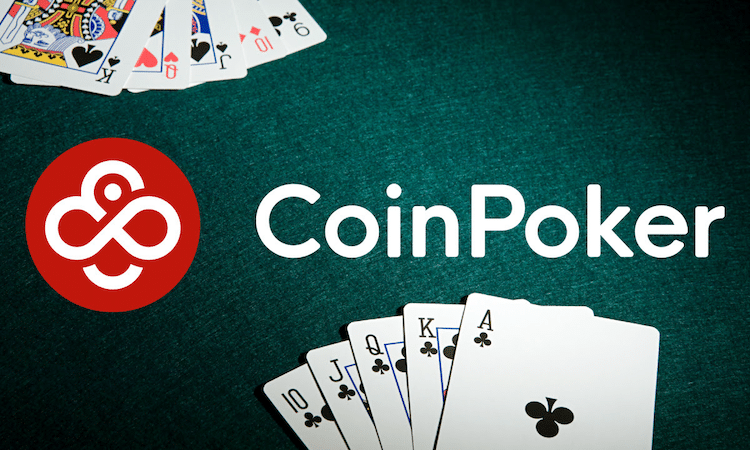South Korea has seen a dramatic rise in illegal online gambling, particularly in the years following the outbreak of COVID-19. The country is struggling to curb these unlawful activities, and a recent report sheds light on the significant growth in illegal gambling. Data from the National Gambling Control Commission reveals that the number of illegal gambling cases has skyrocketed when compared to pre-pandemic levels, as highlighted by The Korea Times.
Dramatic Increase in Illegal Gambling Cases Over Four Years
Before the pandemic struck in 2019, the Commission recorded 13,064 cases of illegal gambling. Fast forward to last year, and this number had nearly tripled, reaching 39,082 cases. One of the key reasons behind this increase is likely the COVID-19 restrictions, which pushed more individuals towards online platforms for entertainment, including illegal gambling. However, it’s not just the pandemic that fueled this trend. The accessibility of online gambling has made it easier for people to engage in these activities. Illegal gambling operators often utilize social media to promote their services, drawing in a broad audience that sometimes includes not only adults but also children who may be enticed by these platforms.
Government Surveillance on the Rise
As illegal gambling cases rose, the South Korean government responded by increasing its surveillance efforts. In 2019, there were 16,662 instances of illegal gambling surveillance, but this number surged to 48,648 in 2023. This spike indicates the authorities’ intent to tackle unlawful gambling more aggressively. It’s worth noting that over 80% of all surveillance cases last year were tied to illegal gambling, reflecting the scale of the problem in South Korea.
Legal Gambling in South Korea
Gambling in South Korea is heavily regulated, with strict laws governing both offline and online activities. Offline gambling is largely restricted to foreigners, with Kangwon Land being the only casino where South Korean nationals are legally allowed to gamble. Despite these restrictions, the country has a thriving gambling industry, primarily through its foreigner-only casinos, state-run lotteries, horse racing, cycling, and boat racing. Online gambling, however, is largely illegal. The government has taken stringent measures to block access to illegal offshore gambling websites and prosecute citizens who participate in these activities. South Koreans caught engaging in illegal gambling, whether online or offline, can face heavy fines or imprisonment.
In terms of revenue, Kangwon Land is a dominant player, contributing significantly to the nation’s gambling income due to the exclusivity of allowing locals to gamble. Other major operators include the government-regulated Korean Lottery Commission, which oversees the national lottery, and the Korea Racing Authority, which manages horse racing. The South Korean gambling market has seen consistent growth in recent years, with total revenues from legal gambling activities exceeding several billion USD annually. Trends indicate a growing interest in alternative betting activities like eSports, which could potentially reshape the future of gambling in the country, despite the legal restrictions on other forms of online gambling. However, the government remains cautious about expanding legal gambling options for its citizens.
The Growing Value of the Illegal Gambling Market
The illegal gambling market’s estimated value has also grown significantly over the years. Back in 2019, the sector was valued at 81.5 trillion won ($59.2 billion). Fast forward to 2023, and this value increased by 26%, reaching 102.7 trillion won ($74.6 billion). This rise in the market’s worth illustrates just how deeply rooted illegal gambling has become in the country.
The Trend Continues in 2024
The troubling expansion of illegal online gambling continues this year as well. By August 2024, 32,309 cases of illegal gambling had already been documented. These cases break down into 11,962 related to illegal betting, 9,507 involving illegal iGaming websites, and 17,733 linked to illegal casino gambling. With these figures in mind, it’s highly probable that 2024 will show another increase in illegal gambling activity compared to the previous year.
High-Profile Cases Draw Public Attention
Several high-profile illegal gambling cases have recently made headlines, further emphasizing the extent of the issue in South Korea. One such case involved BTS’ Jimin, who made news for giving money to comedian Lee Jin Ho. Lee, a well-known figure, struggled with a gambling addiction that resulted in significant debt due to his participation in illegal gambling activities.
Looking Ahead
With illegal online gambling on the rise and no signs of slowing down, South Korea faces a significant challenge in curbing this growing problem. The government has clearly intensified its efforts to monitor and regulate illegal gambling activities, but the ever-increasing accessibility of these platforms, coupled with the lure of quick money, continues to attract new participants. As 2024 progresses, it will be crucial to see how these numbers evolve and whether the country’s measures to combat illegal gambling can make a meaningful impact.
Gambling Laws and Illegal Gambling in Asia
In China, all forms of gambling, except for state-run lotteries, are strictly prohibited. This has led to the rise of illegal gambling rings, often operating through underground casinos or online platforms. The Chinese government has taken a hard stance against these activities, regularly cracking down on both domestic and international operators that target Chinese citizens. Macau, a Special Administrative Region, is the only place in China where casinos are legal, and it has become a global hub for gambling. However, the illegal sector, particularly online gambling, continues to thrive outside of these boundaries, posing challenges for law enforcement.
Japan has similarly strict gambling laws, with only specific forms of betting like horse racing, bicycle racing, and the lottery being legal. Pachinko, a popular slot-machine-like game, operates in a legal grey area, where winnings are exchanged for prizes instead of cash directly. Despite these restrictions, illegal gambling operations, especially in the form of underground casinos and online platforms, persist. Recently, Japan has taken steps toward legalizing integrated resorts (IRs), which include casinos, to boost tourism. However, concerns about the potential rise of illegal gambling activities alongside these developments remain.
In Malaysia, most forms of gambling are illegal, particularly for the majority Muslim population, as it contradicts Islamic law. Non-Muslims, however, are allowed to gamble in licensed venues such as the renowned Genting Highlands Resort. Despite these legal provisions, illegal gambling, especially in the form of underground betting and online gaming, is widespread. The government regularly targets these illegal operations, but their persistence highlights the difficulties in fully eradicating unregulated gambling activities in the country.
Successful Responsible Gambling Measures
Singapore has been lauded for its proactive approach to responsible gambling. The country’s integrated resorts, Marina Bay Sands and Resorts World Sentosa, work closely with the National Council on Problem Gambling (NCPG) to implement various safeguards. One of the most notable measures is the Casino Exclusion Program, which allows individuals to voluntarily or involuntarily exclude themselves from casino premises. Singapore also implements a daily entry fee for residents who want to enter casinos, which serves as a deterrent and promotes responsible gambling behavior among locals. These measures, along with public education campaigns, have contributed to minimizing problem gambling.
Macau, despite its reputation as the gambling capital of the world, has also taken steps to encourage responsible gambling. The region has introduced mandatory responsible gambling guidelines for casino operators, requiring them to offer self-exclusion programs and provide resources for those seeking help with gambling addiction. Public awareness campaigns about the risks of gambling are also regularly conducted, aimed at both tourists and locals. These efforts are part of a broader initiative to maintain the integrity of Macau’s gaming industry while addressing the potential social harms of problem gambling.

CoinPoker: Revolutionizing Online Poker with Blockchain Technology
If you’re a poker enthusiast looking to explore the world of cryptocurrencies, CoinPoker offers a fresh and innovative approach. Unlike traditional online poker rooms, CoinPoker is built on blockchain technology, delivering a secure, transparent, and modern gaming experience. It’s not just limited to poker—CoinPoker also includes sports betting and fully embraces cryptocurrencies, giving players a unique alternative to conventional poker platforms.
How CoinPoker is Changing Online Poker with Blockchain
Since its inception in 2017, CoinPoker has been at the forefront of integrating blockchain technology into online poker. Originally launched as a free-to-play platform, it transitioned to real-money games in 2018, allowing players to wager using various cryptocurrencies. The platform’s native token, CHP (Chip), plays a central role in the ecosystem, offering rewards and facilitating fast transactions. CoinPoker also supports popular cryptocurrencies like Bitcoin (BTC), Ethereum (ETH), and Tether (USDT), all of which operate on the Ethereum network. The use of blockchain ensures high-level security and transparency, making CoinPoker a trailblazer in the world of crypto-based poker.
One of CoinPoker’s standout features is its Random Number Generator (RNG) technology, which ensures fairness in every poker hand dealt. This, combined with the decentralized structure of the platform, appeals to players who prioritize fairness and security. Additionally, the use of cryptocurrencies allows players to stay anonymous, providing a layer of privacy and security without the need to share personal information.
Security, Transparency, and Trust at CoinPoker
CoinPoker has earned a solid reputation within the online poker community, bolstered by endorsements from prominent poker pros like Mario Mosböck and Patrick Leonard. These endorsements have strengthened its credibility, especially among serious poker enthusiasts. Operating under a license from Curaçao eGaming, CoinPoker also employs a Proof of Reserves (PoR) system, ensuring that all player deposits are fully backed. With reserves exceeding $16 million, the platform guarantees the safety of players’ funds, offering financial security and peace of mind.
The use of cryptocurrencies allows for fast, secure transactions, eliminating the delays often seen on traditional poker platforms. CoinPoker’s commitment to quick payouts and robust anti-fraud measures has helped it build a reputation for reliability and ease of use. While its game selection may not be as broad as some larger platforms, CoinPoker’s focus on fairness, security, and crypto integration makes it a standout choice for players looking for a blockchain-powered poker experience.
CoinPoker’s Vision for the Future
As the landscape of online gaming continues to evolve, CoinPoker is positioning itself as a leader in innovation within the poker world. By harnessing the power of blockchain, the platform not only enhances the overall poker experience but also sets a new standard for the entire online gaming industry. As more players seek out secure and private environments, CoinPoker’s approach becomes even more relevant.
But CoinPoker isn’t stopping at poker. The platform is actively working to expand its offerings, with plans to introduce new tournament formats and game styles tailored to a diverse range of players. This community-driven approach fosters engagement and interaction, creating a dynamic and immersive experience for its users. Regular updates and continuous enhancements ensure that CoinPoker stays ahead of the curve in delivering the best possible poker experience.
Embrace the Future of Poker with CoinPoker
For poker players eager to dive into the world of decentralized gaming, CoinPoker offers an exciting and innovative platform. Whether you’re a seasoned poker pro or new to the game, CoinPoker blends cutting-edge blockchain technology with the timeless appeal of poker. Join CoinPoker today and experience the future of poker, powered by the advantages of blockchain.


